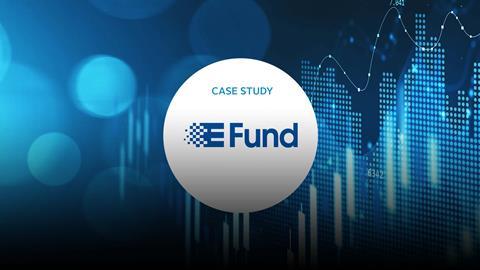- Signatory type: Investment manager
- Asset class focus of case study: Listed equity, fixed income
- HQ Country: China
In 2017, E Fund Management began building a proprietary ESG technology platform, ArkESG, shortly after E Fund became one of the earliest PRI signatories in mainland China. With the local ESG market then still in an emerging stage, ArkESG was designed to tackle local ESG data challenges and help to systematically integrate ESG evaluations into E Fund Management’s investment research processes.
With more than three years’ local ESG research experience, technology improvement and cross-team collaboration, ArkESG has evolved into an all-in-one ESG platform, enabling E Fund’s responsible investment across asset classes by applying three layers of localised ESG indicators to China A-Share listed companies and more than 99% of domestic bond issuers. ArkESG is used during E Fund’s negative screening processes, best-in-class selections and active ownership activities.
Why this approach?
To support and facilitate ESG incorporation practices at E Fund, ArkESG utilitises and enables ESG data acquisition, AI-powered ESG analysis and ESG evaluation.
-
ESG data acquisition
One of the main challenges of ESG investing in China is sourcing relevant data. There are many thousands of potentially important ESG data sources, including listed companies, regulators, government agencies, courts, news media, etc. All of them provide vast volumes of ESG information, but with varying data structures and different classification standards.
To tackle these data challenges, the ArkESG platform automatically collects and processes information from over 70,000 data sources on a continuous basis, extracting relevant and up-to-date ESG information that is fed into its analysis models.
Currently, ArkESG covers more than 4,000 A-Share listed companies and over 5,000 bond issuers in China with over five years of historical data, as well as more than 200,000 related companies. It connects with domestic and global ESG data providers, consolidating in one place relevant internal and external ESG information for research and investment. Each day, nearly 40,000 pieces of ESG data are fed into the database to ensure its accuracy and timeliness.
-
AI-powered ESG analysis
ArkESG applies AI technologies to its ESG database to tease out patterns and themes, using a number of approaches. For example, it deploys customised natural language processing (NLP) technology and knowledge graph technology.
The customised NLP model is used to extract material information from the huge volume of news inputs. An algorithm extracts key information regarding important entities, including both hard facts as well as sentiment. Based on pre-set logics, the news information is broken down into six major classifications and 24 sub-classes and is marked with more than 50 label options. Within an hour, the platform can process live news articles, remove duplicates, and identify ESG-related events and core ESG risks. Such processes repeat every fifteen minutes to ensure the system captures first-hand ESG events as quickly as possible.
Meanwhile, knowledge graph technology is used to find connections such as supply chain relations, loans and guarantees, different companies’ shareholdings, as well as individuals’ participation in different companies, etc. By sorting out complicated and hidden relationships, ArkESG can identify ESG risk events and trace them to the relevant listed companies or bond issuers. Currently, E Fund’s ESG platform covers more than 270,000 entities which are traced back to all of its focused underlying portfolio.
-
ESG Evaluation
Based on the above analysis, ArkESG provides three layers of ESG indicators to create a systematic ESG evaluation framework. Its investment teams’ ESG analysts apply the large set of ESG information gathered and processed through the ArkESG system to a number of different responsible investment strategies.
For instance, E Fund’s exclusion strategy excludes companies whose practices are fundamentally misaligned with E Fund’s ESG principles, or which are excluded based on clients’ requests. Its best-in-class strategy, meanwhile, identifies companies with superior ESG practices, through top-down secular trends that are at the core of long-term sustainability, as well as bottom-up security-specific evaluations. Throughout the responsible investment and research processes, ArkESG facilitates and integrates material ESG information in addition to its fundamental analysis.
What were the outcomes, benefits, challenges and next steps?
E Fund’s ArkESG platform provides the firm with two major outcomes: enabling investment professionals across the fund manager to integrate ESG into strategies with strong technical support, and mitigating ESG-related risks in a timely and systematic fashion.
For example, ArkESG enables the discovery of hidden ESG risks using AI technology. A well-known Chinese Group in the home appliance industry, ‘Company AB’, controls two A-Share listed companies: Listed Company A and Listed Company B. Using knowledge graph technology, ArkESG identified multiple important entities, key individuals and relationships related to Group AB of potential importance. Thus, E Fund could understand key connections, such as which entities are the actual beneficiaries, and how they relate to the management of Company AB, and then identify issues such as conflicts of interest, and high percentages of related-party transactions, eventually feeding those into its evaluation of ESG risks.
ArkESG provides E Fund with advanced ESG technical capabilities that it can customise and continuously develop, which are relevant to the local market, meet client demand and, most importantly, match its investment philosophy. It also connects different departments including investment, research, risk management, fintech and client servicing, to form integrated and structured approaches to responsible investment, guided by E Fund’s responsible investment and active ownership policies.
Looking ahead, challenges mostly stem from the lack of ESG data disclosed by A-Share listed companies. With local regulators and stock exchanges planning to introduce mandatory ESG reporting guidelines, resolution of these challenges is likely in the near future.
To apply ArkESG more broadly, E Fund plans to continue to develop the AI/big data technologies that facilitate it.












